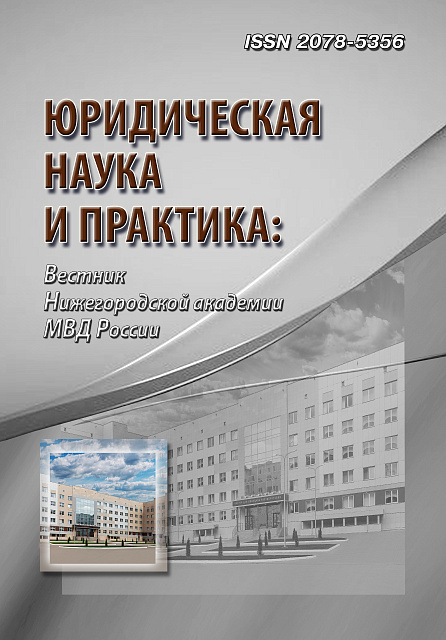Rehabilitation in the criminal process of Russia and Kazakhstan is a necessary mechanism for special public restitution of the rights of a person who has been subjected to illegal criminal prosecution. At the same time, the main structural element of this right should be precisely the public recognition by officials conducting criminal proceedings of the fact that a person was unlawfully or unreasonably subjected to criminal procedural coercion. Compensation for harm is an essential, but not a decisive element of the rehabilitation procedure, since a person may not exercise this right. The Russian and Kazakh legislative models of the institute of rehabilitation are among the most prosperous in the CIS countries, however, certain issues still require a clearer, axiologically determined solution. It seems significant to make a clear meaningful distinction between these related concepts, with an emphasis on the fact that rehabilitation is, first of all, not the right of a person who has been subjected to illegal criminal prosecution, but the duty of state officials. A comparative legal analysis of the CPC of the Russian Federation and the CPC of the Republic of Kazakhstan, as well as the criminal procedure legislation of some other neighboring countries, allows us to formulate a number of conclusions aimed at more effective regulation of the institute of rehabilitation in Russia and Kazakhstan in matters of a clear distinction between the concepts of “rehabilitation” and “compensation for harm”.
rehabilitation, compensation for harm, rehabilitation institute, person subject to rehabilitation, Criminal Procedure Code, criminal prosecution, comparative legal analysis, obligation of rehabilitation, criminal procedure, civil procedure
1. Popov V. S. Rehabilitation in criminal proceedings: about its essence and content. Business in law, 2012, no. 4, pp. 35–39. (In Russ.)
2. Criminal Procedure Code of the Russian Federa-tion no. 174-FZ of December 18, 2001 (as amended of June 28, 2023). Rossijskaya gazeta, 2023, June 20. (In Russ.)
3. The Constitution of the Russian Federation (adopted by popular vote of December 12, 1993 with amendments approved during the all-Russian vote of March 14, 2020). Rossiyskaya Gazeta, 2020, July 4. (In Russ.)
4. The Constitution of the Republic of Kazakhstan (adopted at a republican referendum of August 30, 1995, with amendments and additions as of September 19, 2022). Gazette of the Parliament of the Republic of Kazakhstan, 1996, no. 4, art. 217. (In Russ.)
5. Criminal Procedure Code of the Republic of Kazakhstan no. 231-V of July 4, 2014: adopted by the Parliament of the Republic of Kazakhstan (as amended of July 24, 2023). Kazakhstanskaya Pravda, 2014, July 10. (In Russ.)
6. Criminal Procedure Code of the Republic of Moldova no. 122-XV of March 14, 2003: adopted by the Parliament of the Republic of Moldova (as amended on December 1, 2017). Official Gazette, 2003, no. 104–110, art. 447. (In Russ.)
7. Criminal Procedure Code of the Republic of Belarus (code no. 295-Z of July 16, 1999): adopted by the House of Representatives of June 24, 1999 (as amended of July 17, 2023). National Register of Legal Acts of the Republic of Belarus, 2000, no. 77–78. 2/71. (In Russ.)
8. Criminal Procedure Code of the Kyrgyz Republic of October 28, 2021 no. 129: adopted by the Jogorku Kenesh of the Kyrgyz Republic (as amended of June 22, 2023). Erkin-Too, 2021, no. 135 (3314). (In Russ.)
9. Criminal Procedure Code of the Republic of Uzbekistan: approved by the law of the Republic of Uzbekistan no. 2013-XII of September 22, 1994 (as amended of August 12, 2023). Oliy Kengash Axborotnomasi, 1995, no. 2. (In Russ.)
10. Kuznetsova A. D. Features of rehabilitation in criminal proceedings of the Russian Federation when considering cases by the court of first instance. Dissertation… candidate of legal sciences. Ekaterinburg, 2022. 176 p. (In Russ.)
11. Data from judicial statistics of the Judicial Department of the Supreme Court of the Russian Federation. URL: http://www.cdep.ru/index.php?id=79. (accessed 18.07.2023). (In Russ.)
12. Shalumova N. E. Constitutional right to rehabilitation: basic concepts. Bulletin of KGU named after N. A. Nekrasova, 2006, no. 5, pp. 134–138. (In Russ.)
13. Tatyanin D. V. Rehabilitation in the criminal process of Russia (concept, types, grounds, procedural order). Author’s abstract … candidate of legal sciences. Izhevsk, 2005. 24 p. (In Russ.)
14. Ashirbekova M. T. The principle of publicity of criminal proceedings: concept, content and limits of action. Author's abstract … candidate of legal sciences. Ekaterinburg, 2009. 62 p. (In Russ.)
15. Bezlepkin B. T. New guarantees of the legitimate interests of the rehabilitated. Soviet state and law, 1982, no. 6, pp. 62–70. (In Russ.)
16. Podoprigora A. A. Rehabilitation in the criminal process of Russia. Author’s abstract … candidate of legal sciences. Rostov-on-Don, 2004. 26 p. (In Russ.)
17. Ramenskaya V. S. Institute of Rehabilitation in Criminal Procedure. Author’s abstract … candidate of legal sciences. Ekaterinburg, 2004. 22 p. (In Russ.)












